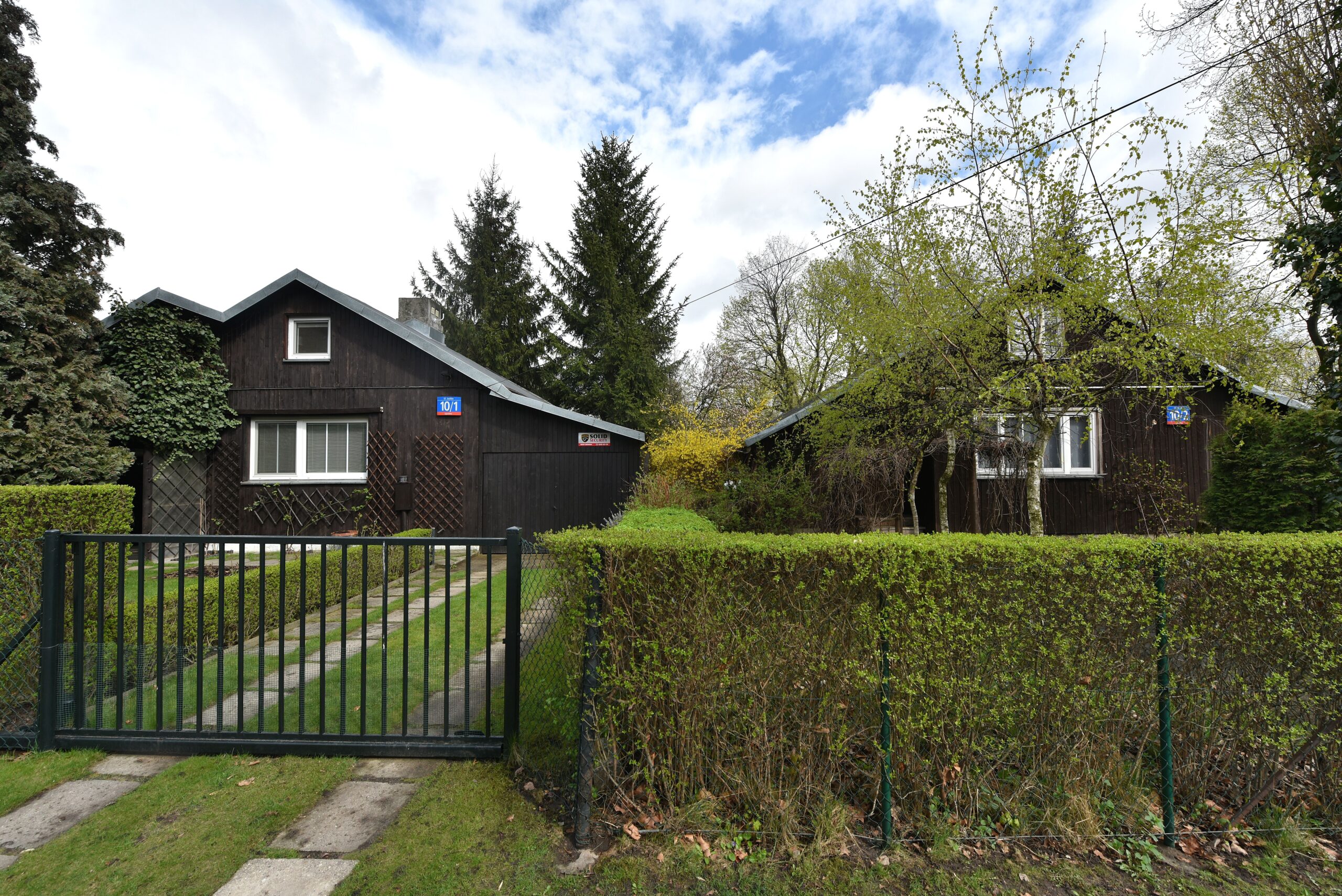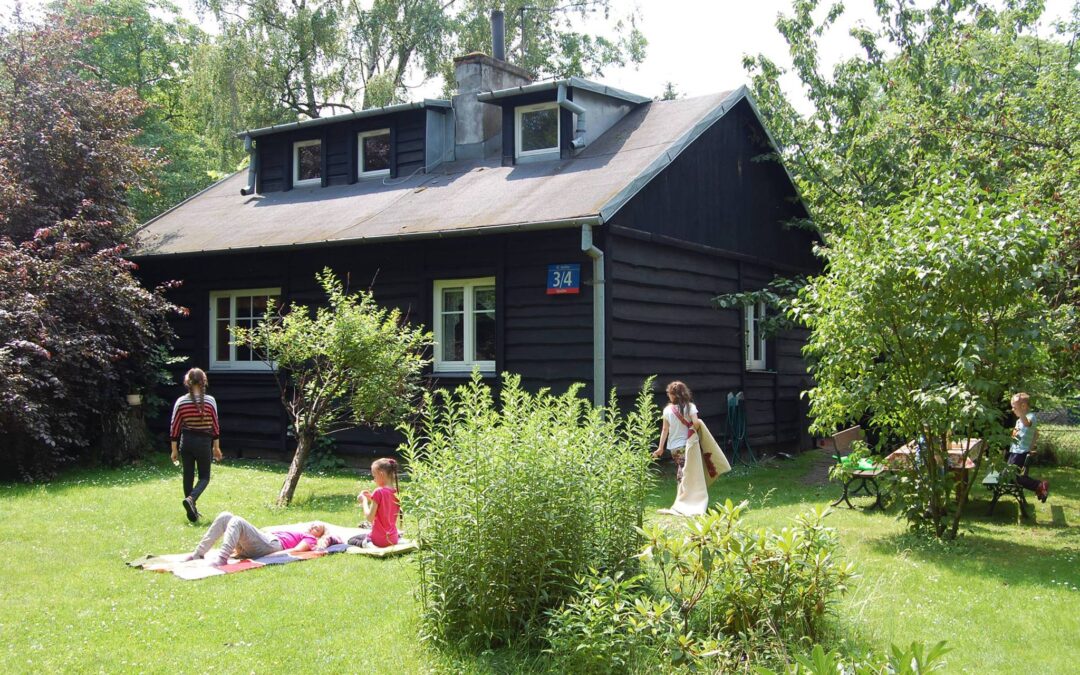Activists in Warsaw have raised concern about the future of a famous district in the city centre made up of wooden houses built in the aftermath of World War Two.
They say that redevelopment plans put forward by local authorities – which would result in residents no longer being able to live there – make no sense during a housing crisis but would also “mean the destruction of cultural heritage”.
The area in question is called Jazdów Estate (Osiedle Jazdów) and is filled with wooden buildings widely known in Poland as “Finnish cottages” (domki fińskie).
The name refers to a type of prefabricated house given to Poland after the war by Finland in exchange for coal. They were most often located in Poland’s southeastern coal heartlands of Silesia.
The estate in Warsaw was actually built in 1945 with houses donated by the Soviet Union, which had seized control of Poland at the end of the war. Moscow had itself received the houses as part of war reparations from Finland and gave hundreds of them to the Polish capital, which had been devasted by the war.
Of the original 90 wooden buildings erected in Jazdów, around 20 remain, notes the Gazeta Wyborcza newspaper. Only a few of those are still inhabited as residential properties, with others made available to host meetings, exhibitions, concerts and other events by a group called Otwarty Jazdów (Open Jazdów).

“Finnish cottages” in Warsaw’s Jazdów Estate (Adrian Grycuk/Wikimedia Commons, under CC BY-SA 3.0 PL)
In 2011, the mayor of the Warsaw district in which Jazdów is located wanted to remove the Finnish cottages to make way for modern development of the area. However, following protests, it was eventually decided to let them remain.
But now Otwarty Jazdów warns that a new draft development plan again threatens the historic estate. While it requires that the old wooden structures be preserved, it would no longer allow them to serve a residential function.
The local authorities say that any existing residents of the buildings would be allowed to remain. But activists say that, once those residents move out or if they die, new ones would not be allowed to move in.
Władze Warszawy chcą wyrzucić z domków fińskich na Jazdowie ich mieszkańców i zrobić tam enklawę drogich knajp – alarmuje aktywista Jan Mencwel. Na alarm bije też stowarzyszenie Otwarty Jazdów. Co właściwie ze słynnym osiedlem chce zrobić miasto?https://t.co/nfh9ykmJbY
— Wyborcza.pl Warszawa (@GazetaStoleczna) January 7, 2024
Because the draft development plan allows for gastronomic services to be established in the estate, the activists fear that the area will transformed into a nightlife venue or a kind of “open-air museum” without its traditional residential role.
“Liquidating the city’s housing stock during a huge housing crisis is not only irrational but also unethical,” wrote Otwarty Jazdów in an appeal against the plans on social media. Poland currently suffers from a significant undersupply of housing.
Otwarty Jazdów has appealed to the public to submit comments to the public consultation process on the draft development plans, with today, 8 January, being the final day that they can be sent.
“[The development plan] in its present form means the final liquidation of the Jazdów Estate as we know it,” wrote the group on social media. “Human inhabitants are to disappear from Jazdów. This means the destruction of the cultural heritage that constitutes this place.”
The group argues that the fact that Jazdów remains such an attractive place is thanks to the residents, who were responsible for developing it.
The estate was “a unique experiment on a European scale, which was successful partly because it was not planned – the largest grass-roots, self-organising centre of culture and education in Poland…[and] which constitutes the intangible heritage of Warsaw”.
City hall, however, argues that its plans are intended precisely to “protect the cultural heritage and historical values of the area” – which it calls an “oasis in the centre of Warsaw” – and to make sure it is “open and accessible to all city residents”.
Chcemy chronić domki fińskie i zieleń na Jazdowie. Mieszkańcy mogą się wypowiedzieć na temat przyszłości obszaru Skarpy Warszawskiej w konsultacjach społecznych do 8 stycznia 2024 r.https://t.co/ueoz9WqMMd pic.twitter.com/6uKcJqdV91
— Warszawa (@warszawa) December 1, 2023

Notes from Poland is run by a small editorial team and published by an independent, non-profit foundation that is funded through donations from our readers. We cannot do what we do without your support.
Main image credit: Otwarty Jazdów/Facebook

Daniel Tilles is editor-in-chief of Notes from Poland. He has written on Polish affairs for a wide range of publications, including Foreign Policy, POLITICO Europe, EUobserver and Dziennik Gazeta Prawna.



















